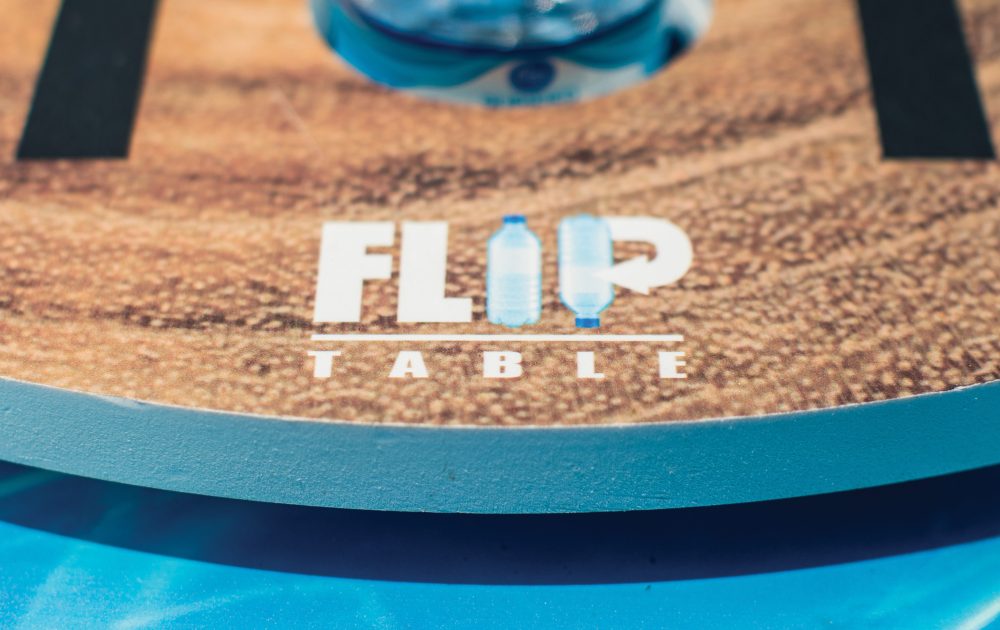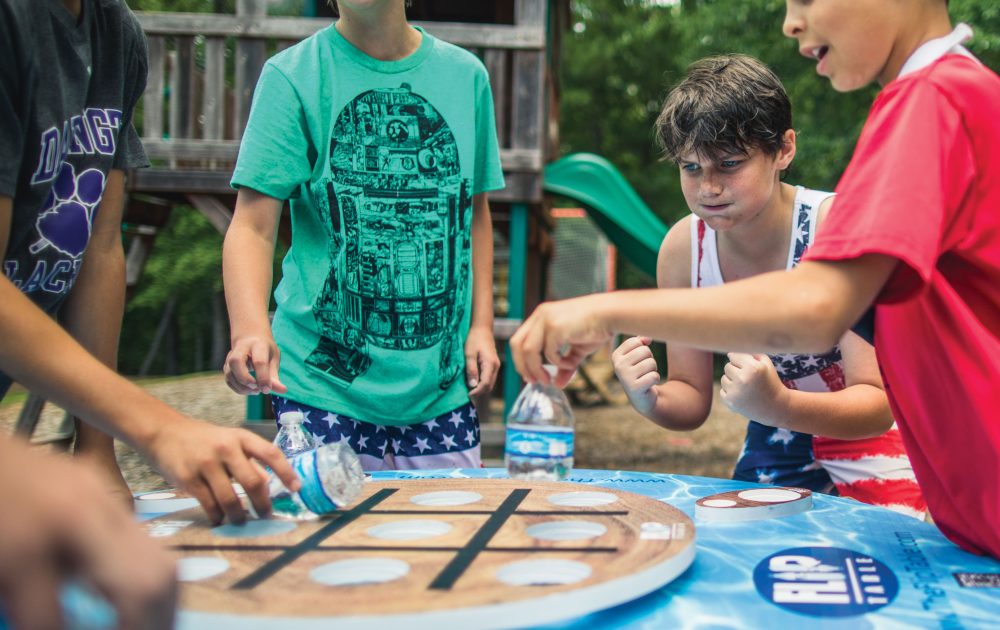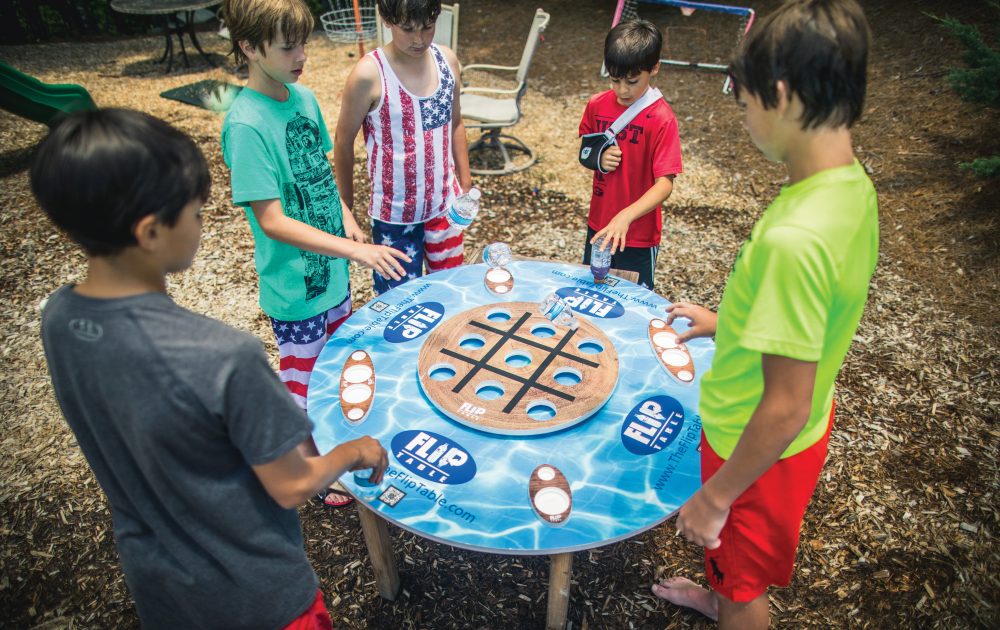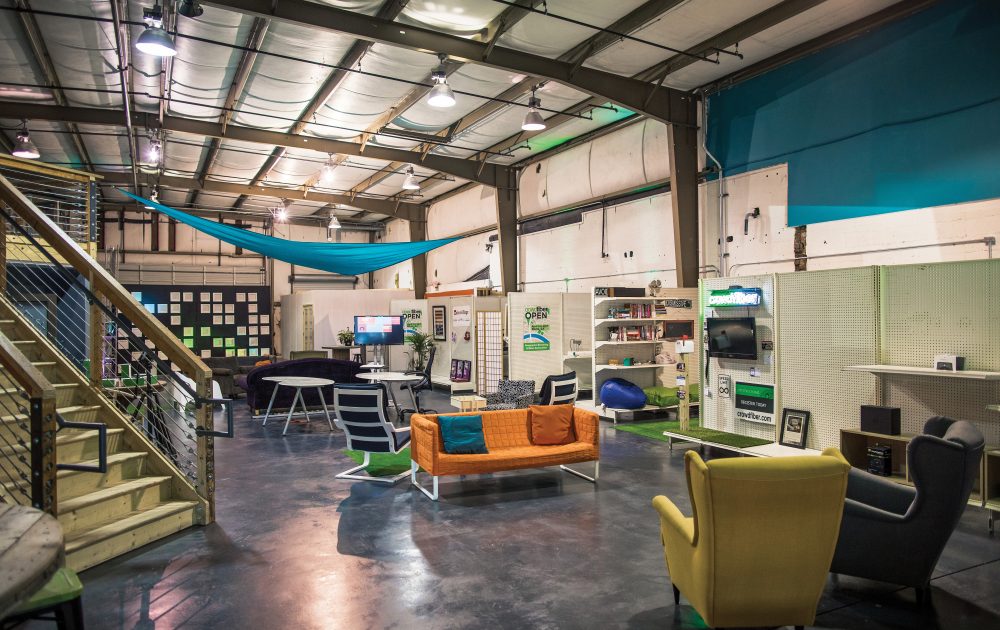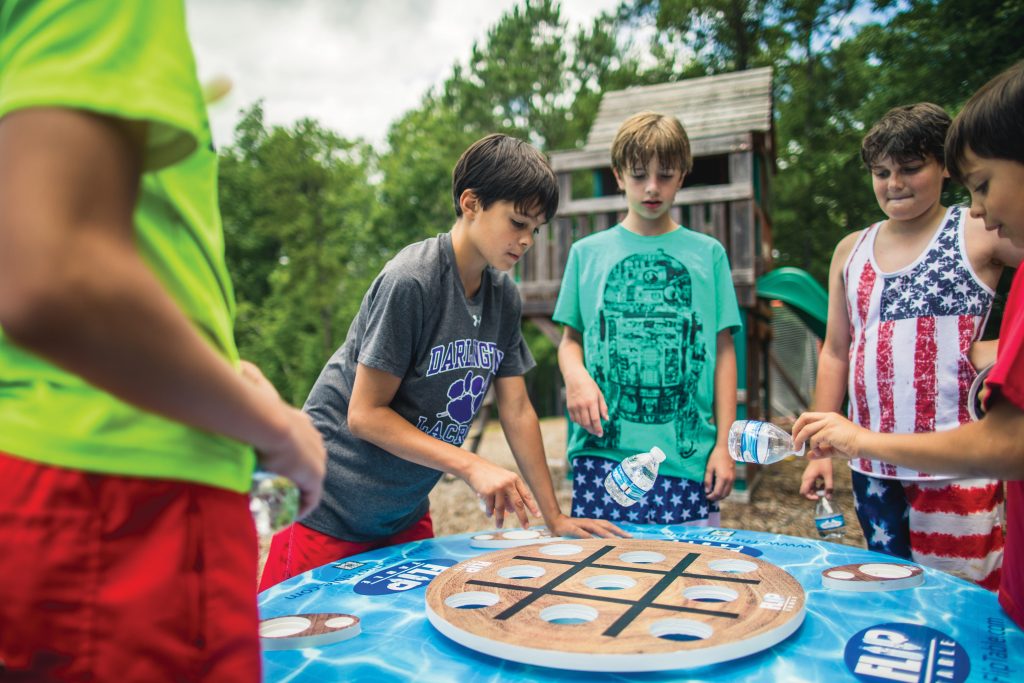
PHOTOGRAPHY CAMERON FLAISCH
In the summer of 2016, within the virtual cos-mos of YouTube, a young man named Michael Senatore, a student of Ardrey Kell High School in Charlotte, North Carolina, became famous with a single flip of a disposable water bottle. This performance of what seemed to be a true feat of human talent, recorded by one of Senatore’s friends during their high school’s annual talent show, was then uploaded online to be viewed and shared by hundreds, then thousands, then millions of viewers worldwide who marveled at this students “remarkable” talent.
Today, original videos of Senatore’s bottle flip have reached over 50 million views. It be-came known as the “Water Bottle Challenge”, in which soon millions of kids and teens would accept and upload their own videos of bottle tricks online. A community of bottle-flippers was formed throughout the American youth.
As a result of this new-found fad, the hallways and lunchrooms of schools nationwide were plagued by the incessant flipping of bottles, catch-ing the attention of the teachers and principals. Many schools banned bottle flipping, or disposable water bottles all together, on school grounds.
Kent, head teacher of Fulston Manor School in Sittingbourne, England, said that the disposable water bottle ban was in order to “avoid problems created by litter, messing about in lessons, and pupils indulging in the current craze of flipping bottles with all the intended and unintended consequences it produces.”
This prompted the rule-abiding youth of the US to take their bottle flipping outside of the schoolyard. They brought their newfound skills to the streets, parks and homes which, in short,threatened the mental well-being of parents and government officials alike. The sanity of parents were put to the test daily by the thump, thump, smack, of flipped water bottles on hardwood floors, including parents Dr. John and Annie Cowan of Rome, Georgia.
“My wife and I recognized the activity as being a problem, the kids not-so-much,” explains neuro surgeon, Dr. John Cowan. “The kids were flipping bottles everywhere and driving parents and adults crazy, and I knew we had to do something to solve the problem.”
However, John asked himself, do we have to stop this active, non-electronic fun?
During that same time the Cowan’s kids, Jack (12) Tommy (11), Grace (9) and young Charlie (6), explained to their father, that they wanted to be inventors like him. Dr. Cowan, who has a history with medical inventions himself, saw this “nuisance” as a perfect opportunity to teach his kids a valuable lesson. So, he sat his children down and shared with them a lesson that he has always relied on himself. As every successful inventor would agree, Dr. Cowan told his kids that the way to become an inventor was to find a problem and then come up with a unique way to solve it.
So, the Cowan kids took on this challenge, and decided to tackle the problem of unwarranted and unrestricted bottle flipping. The kids decided that if only there was a specified and approved place to bottle flip, along with a more organized game that flippers could challenge themselves with, bottle flipping might finally lose its stigma and become accepted in homes worldwide.
This was the birth of the FlipTable.
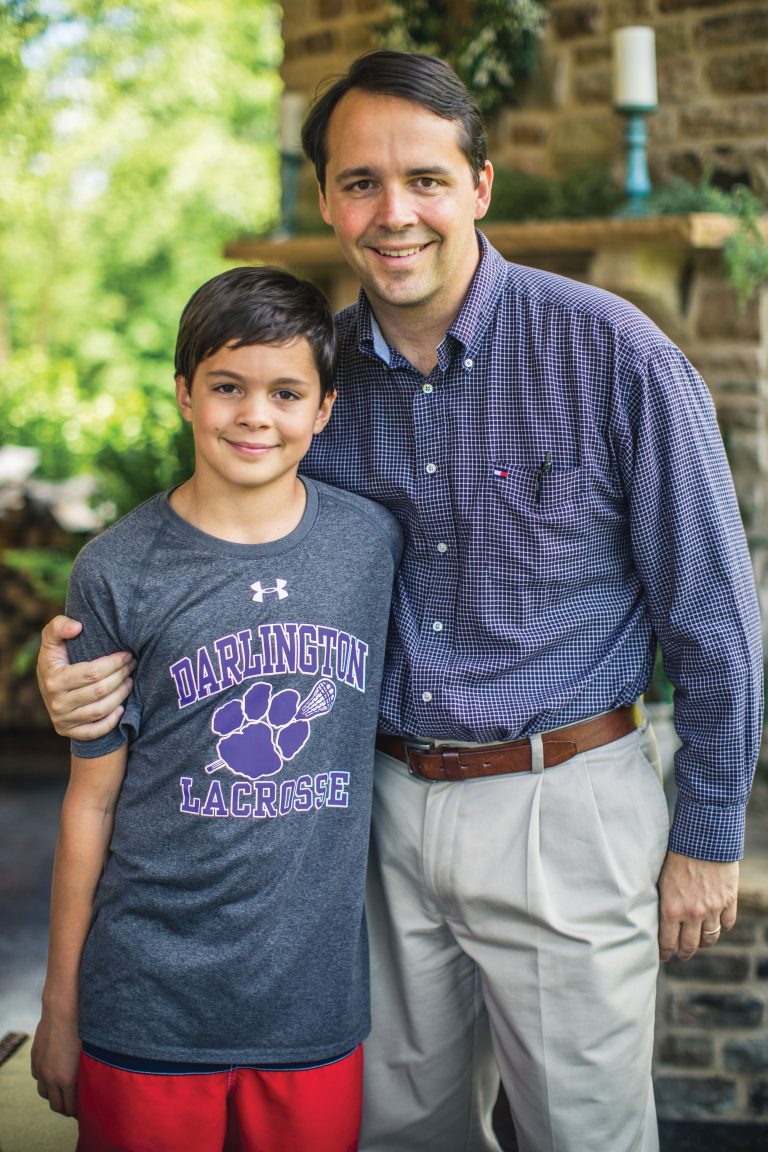
Dr. Cowan and the Cowan family decided to create a wooden board onto which a bottle could be flipped, a board with holes of varying sizes, serving as targets for bottles to land on. And they developed several games to go with the idea like a modified tic-tac-toe they deemed “flip-tac-toe, other games involving matching your opponent’s trick shots, and timed rounds for solo play. After a month of design and testing, the Cowan family developed the first FlipTable prototypes.
They have also developed a pocket-sized version they named the “Atlantic”, a larger 4 holed board they named the “Pacific”, and an even larger table with 9 holes perfect for a round of “FlipTac- Toe.” The family created videos and web-pages devoted to bottle-flip tricks and demonstrations of their game, along with rule guidelines found to maintain the purity of what was to be known as the FlipTable.
The work of the Cowan Family has payed off. FlipTable made their first sale on January 24th of this year, and have since been selling online via their company website (www.thefliptable.com),on Amazon, Ebay, and local stores and markets. The Cowan kids have learned firsthand what it is like to run their own small business, and how to manage the challenges and opportunities that come from such a venture. All family members contribute to the overall development and success of their new game.
“I love selling, it’s my favorite part,” explains Jack. Like Jack, each of the Cowan kids takes time out of their busy athletic and musical careers to perform the necessary business function that keep FlipTable growing as a business.
However, the goal of FlipTable was not merely to turn a popular nuisance into a loved family game, or to teach the Cowan children the value of a good work ethic; the business was also created in order to give back. “One mission is to help raise money for organizations that help to clean bodies of water,” explains Dr. Cowan. “We’ve also raised money to help a missionary who is currently serving in Togo, and an organization called End Slavery Georgia, who we’ve raised money for as well.”
For those new to bottle flipping, or those who may never have even attempted to flip their mostly drained Dasani to land with such precision as to keep it upright, here are some pointers. According to Tommy Cowan himself, joint CEO and bottle-flipping-professional of FlipTable, science holds all the answers. In his study on “the physics of water bottle flipping”, in which he so carefully and masterfully conducted for his school science fair, soon to be released in scientific journals worldwide, he has personally cracked the code.
“Ok, so first the volume of the bottle must be filled exactly one-third of the way up a standard 12-ounce bottle,” explains Tommy. Tommy also found after numerous trials that, “you actually have a better chance of landing a bottle when flipped, instead of dropping it.”
He explains, in mostly scientific jargon, that this is all due to shifting of the center of mass in the bottle as it falls, which causes it to stick as it descends from its flip. Dropping it will only cause it to bounce. Simply stated, the key to the perfect bottle flip is seen only in the flick of the wrist found among true bottle-flipping aficionados.
What’s next, you may ask?
One cannot help but wonder what will come from the entrepreneurial venture of Cowan Family. Trusted and confidential sources speak of yet another game, currently being prototyped in the family back yard. This game will be called “Yard-Polo”, which will be released after the game receives official and unanimous approval from the Cowan Family Board of Directors.
To show your support for the Cowan Family, and to experience the flipping accomplishment that can only be felt through a civilized game of FlipTable, visit www.fliptable.com and place your order now.

